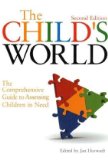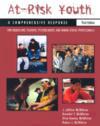Youth Problems
Internalizing and externalizing
August 2008 - Research from Ohio State University published in the Journal of Marital and Family Therapy has challenged the common perception that girls tend to internalize their problems, becoming depressed or anxious, while boys externalize, committing violence against people or property.
Researchers studied 2549 young people appearing before juvenile courts in five Ohio counties and found that whether African-Americans internalized or externalized their problems was dependent on family circumstances rather than gender.
Stephen Gavazzi, professor of human development and family science said:
"If you look at most studies involving internalizing and externalizing among youth, they generally look at white, middle-class samples. Most research has not paid attention to race. And when studies do look at race, they are not likely to look at family and gender as well."
Researchers used their Global Risk Assessment Device (GRAD) an internet-based questionnaire for young people designed to assess risk of further problems in life and including issues such as previous involvement with the law, family and parenting, substance abuse and traumatic events. For example, respondents are asked about fights with adults in their homes, if they have friends who have been in trouble with the law, and if they have trouble controlling their anger.
The study found that once family circumstances were taken into account African-American girls and boys showed similar levels of externalizing and internalizing behavior being more likely to show outward aggression if they lived in families with higher levels of dysfunction. This relationship was not found in white families. Researchers are currently trying to identify characteristics of African-American families that may influence these findings; for example, family conflict and levels of parental monitoring.
Stephen Gavazzi commented:
"Family issues affect children in African-American families differently than they do in white families. That is something that really hasn't been found before .... Researchers who study ethnicity and culture have long noted the primacy of family for African Americans. That's telling us that families matter in a different way for African-American youth than what we're finding for whites."
July 2008 - Research from the University of Vermont and the University of Minnesota published in Child Development found that young people with pre-existing relationship difficulties are more likely to develop anxiety and depression than the other way round, this being particularly the case when entering adulthood.
The study analyzed data from Project Competence which has followed 205 individuals from mid-childhood (ages 8 to 12) into young adulthood. Researchers interviewed participants and questioned parents, teachers, and classmates to measure "internalizing" of problems (symptoms such as anxiety, depression, or withdrawn state) compared to social competence (healthy relationships). They then assessed the on-going relationship between these parameters and whether they changed over time. Researchers found a significant degree of continuity: those with more internalizing problems at the start were more likely to experience these problems in adolescence and young adulthood; those who were socially competent maintained this as they grew up. Results were generally the same for both males and females.
The study also found evidence of spill-over effects, where social problems contributed to increasing internalizing symptoms over time. Those who were less socially competent in childhood were more likely to experience anxiety or depression in adolescence. Similarly, lack of social competence in adolescence was associated with greater risk of such symptoms in young adulthood. These findings remained the same when alternative explanations were taken into account, such as intellectual functioning, the quality of parenting, social class, and antisocial behaviour such as fighting, lying, and stealing.
Lead author Keith Burt, assistant professor of psychology at the University of Vermont said:
"Overall, our research suggests that social competence, such as acceptance by peers and developing healthy relationships, is a key influence in the development of future internalizing problems such as anxiety and depressed mood, especially over the transition years from adolescence into young adulthood. These results suggest that although internalizing problems have some stability across time, there is also room for intervention and change. More specifically, youth at risk for internalizing problems might benefit from interventions focused on building healthy relationships with peers."
Related Articles
Developmental Psychology Articles Inter-Personal Psychology Articles
 The Child's World: The Comprehensive Guide to Assessing Children in Need At-risk Youth: A Comprehensive Response for Counselors, Teachers, Psychologists and Human Services Professionals |